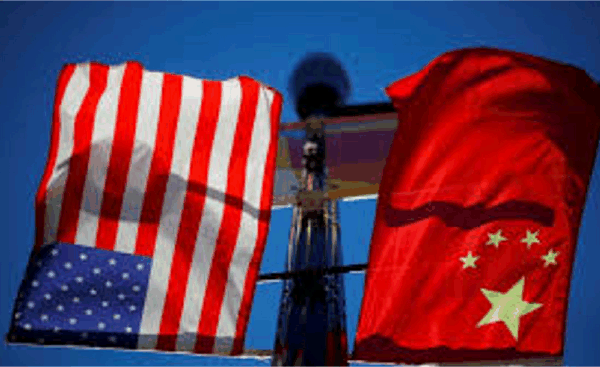코로나19와 백신 민족주의의 대가
미국 달러 위에 놓여 있는 주사기와 코로나19 백신 앰플, 사진 제공: JYPIX/Adobe Stock
어도비 스톡
백신이 없었다면 코로나19로 인한 전 세계 경제적 영향은 연간 3조4000억 달러에 달했을 것이다. 그러나 코로나19 백신이 개발되더라도 불평등한 할당으로 인해 세계 경제는 연간 GDP 1조 2천억 달러의 손실을 입을 수 있습니다.
이슈가 뭐야?
전 세계적으로 수백만 명이 코로나19에 감염됐고 지금까지 100만 명 이상이 이 전염병으로 인해 목숨을 잃었습니다. 신속한 백신을 시장에 출시하기 위해 엄청난 글로벌 연구 노력이 진행되고 있습니다. 2020년 10월 말 현재 165개 이상의 백신이 개발 중이며 일부는 이미 인간 대상 실험에 들어갔습니다.
그러나 안전하고 효과적인 코로나19 백신이나 치료법이 궁극적으로 개발되더라도, 그 제조 및 유통 과정과 관련하여 더 많은 어려움이 나타날 것입니다.
이전 팬데믹과 코로나19 팬데믹의 시작 경험에 비추어 볼 때, 국가 정부는 이러한 사건에 대응할 때 전 세계적으로 조율된 접근 방식을 추구하기보다는 자국의 이익을 따르는 경향이 있습니다. 국가들이 백신 공급에 먼저 접근하고 잠재적으로 백신 생산을 위한 핵심 구성 요소를 비축하려고 하는 상황을 일반적으로 ‘백신 민족주의’라고 합니다. 이러한 민족주의적 행동은 글로벌 팬데믹을 얼마나 잘 관리하고 억제하는지에 부정적인 결과를 초래할 수 있습니다.
우리는 어떻게 도움을 주었나요?
RAND 유럽은 코로나19 백신이 개발되면 백신 민족주의가 글로벌 위기에 어떤 영향을 미칠지 조사하고 백신에 대한 불평등한 접근과 관련된 경제적 영향을 조사했습니다.
연구자들은 백신 민족주의로 인해 일부 국가가 잠재적인 치료를 놓치는 다양한 시나리오에 따라 다국가 거시경제 모델을 사용하여 세계 경제 생산량에 어떤 일이 일어날지 결정했습니다.
우리는 무엇을 찾았나요?
백신 민족주의는 코로나19 백신의 불평등한 할당으로 이어질 수 있으며, 세계 경제에 GDP 기준으로 연간 최대 1조 2천억 달러의 손실을 입힐 수 있습니다. 일부 국가에서 바이러스에 대한 국민 예방접종을 성공하더라도 전 세계 모든 지역에서 바이러스가 통제되지 않는다면 코로나19와 관련된 글로벌 경제적 비용은 계속 발생할 것입니다.
최빈국이 백신에 접근할 수 없다면 세계는 여전히 연간 약 1,530억 달러의 GDP 손실을 입을 것입니다. EU는 연간 약 400억 달러의 손실을 입게 됩니다. 미국은 160억 달러의 손실을 입을 수 있다. 영국은 20억~100억 달러 사이입니다.
세계 최빈국이 개발된 모든 코로나19 백신에 동등하게 접근할 수 있다면 모든 국가는 경제적으로 이익을 얻을 것입니다. 고소득 국가는 백신 공급에 지출된 1달러당 약 4.8달러를 돌려받게 됩니다.
이 질병에 대한 백신이 없는 한, 코로나19와 관련된 전 세계 비용 및 경제적 영향은 연간 3조 4천억 달러에 달할 수 있습니다. EU의 경우 이는 연간 GDP의 약 5.6%, 약 9,830억 달러가 될 것입니다. 영국이 입은 손실은 약 4.3%로 연간 약 1,450억 달러의 손실이 될 것입니다. 미국은 연간 GDP의 약 2.2%, 약 4,800억 달러의 손실을 입습니다.
미국, 영국, EU 27개국, 중국, 인도, 러시아 등 한 국가나 지역만 백신을 접종한다면 경제는 크게 개선되지만 중견 및 중견국의 해외 수요 감소로 인해 경제 활동은 여전히 부정적인 영향을 받을 수 있습니다. 저소득 국가.
백신 민족주의의 연간 잠재적 비용
여기에서는 모든 국가가 바이러스에 대해 인구를 성공적으로 예방할 수 있는 가상 기본 시나리오와 비교하여 4가지 시나리오에 대한 실제 연간 GDP의 추정 변화를 보여줍니다. 첫 번째 시나리오에서는 어떤 국가도 백신에 접근할 수 없습니다. 다음 시나리오에서 백신에 접근할 수 있는 유일한 국가는 현재 조기 백신 접근을 위한 잠재적 후보로 언급된 국가들입니다. 다른 두 가지 시나리오에서는 중산층 및/또는 저소득 국가가 백신에 접근할 수 없습니다.
글로벌 GDP 변화
국가 또는 국가 그룹별 GDP 변화
수십억 단위의 GDP 세부 변화
위치 백신 없는 세계 백신 국가가 접근 가능 모든 고소득 및 백신 국가가 접근 가능 모든 고소득 및 중간 소득 및 백신 국가가 접근 가능
전 세계 -$3,449 -$1,232 -$292 -$153
EU-27 -$983 -$311 -$76 -$40
미국 -$480 -$127 -$30 -$16
중국 -$356 -$110 -$27 -$14
영국 -$145 -$41 -$10 -$5
인도 -$88 -$26 -$7 -$3
러시아 -$52 -$18 -$5 -$2
기타 고소득자* -$997 -$453 -$73 -$39
기타 중간 소득† -$147 -$65 -$30 -$6
기타 저소득층‡ -$200 -$82 -$35 -$28
무엇을 고려해야 합니까?
글로벌 경쟁이나 백신 민족주의는 가장 도움이 필요한 사람들에게 코로나19 백신이 도달하는 것을 방해할 수 있습니다. 백신을 비효과적으로 할당하면 특정 국가의 취약한 사람들이 다른 국가의 위험도가 낮은 사람들보다 먼저 백신을 접종하게 되어 예방 가능한 사망으로 이어질 수 있습니다.
백신 개발과 공평한 접근에 투자하는 것은 장기적으로 경제적으로 이익이 될 것입니다. lea별 현재 지출
백신 개발 및 할당에 대한 경제는 코로나19와 관련된 경제적 손실에 비해 상대적으로 적으며 백신 개발 및 배포에 훨씬 더 많은 투자를 하는 것이 사업상 합리적입니다. 이러한 접근 방식은 글로벌 협력 노력을 강화하기 위한 기반을 형성할 수 있습니다.
백신의 국제적 공유를 장려하려면 백신 개발 및 배포를 위한 시행 가능한 프레임워크가 필요하며 확립된 국제 포럼을 통해 관리되어야 합니다. 국가들은 합의에 구속되어야 하며, 원할 때 공급을 다시 제한할 수 있다고 생각해서는 안 됩니다.
백신 배포를 지원하기 위한 국제적 노력은 시간이 지나도 지속되어야 합니다. 더욱이 이는 아마도 대부분의 정치적 주기를 넘어 확장될 것입니다. 따라서 글로벌 협력은 의사결정에서 단기적인 사고를 없애고 세계 인구의 건강과 경제 발전을 위한 장기적인 열망에 초점을 맞추는 데 도움이 될 수 있습니다.
COVID-19 and the cost of vaccine nationalism

Adobe Stock
Without a vaccine, the worldwide economic impact of COVID-19 would have been $3.4 trillion a year. But even with a COVID-19 vaccine, unequal allocation could cost the global economy up to $1.2 trillion a year in GDP.
What is the issue?
Millions of people worldwide have been infected with COVID-19 and so far, more than a million have lost their lives because of the pandemic. A huge global research effort is taking place to bring a fast-tracked vaccine to the market. As of late October 2020, there were more than 165 vaccines being developed, with some already in human trials.
But even when a safe and effective COVID-19 vaccine or treatment is eventually developed, further challenges will emerge with regards to the manufacturing and distribution process of it.
Experience from previous pandemics and the onset of the COVID-19 pandemic suggests that in responding to such events, national governments tend to follow their own interests instead of pursuing a more globally coordinated approach. A situation where countries push to get first access to a supply of vaccines and potentially hoard key components for vaccine production has commonly been referred to as ‘vaccine nationalism’. This nationalistic behaviour could have negative consequences on how well the global pandemic is managed and contained.
How did we help?
RAND Europe examined how vaccine nationalism would affect the global crisis once a COVID-19 vaccine is developed and looked at the economic effects associated with unequal access to the vaccine.
Researchers used a multi-country, macroeconomic model to determine what would happen to global economic output, depending on different scenarios in which some countries miss out on potential treatment because of vaccine nationalism.
What did we find?
Vaccine nationalism could lead to the unequal allocation of COVID-19 vaccines and cost the global economy up to $1.2 trillion a year in GDP terms. Even if some countries manage to immunise their populations against the virus, if the virus is not under control in all regions of the world, there will continue to be a global economic cost associated with COVID-19.
If the poorest countries cannot access vaccines the world would still lose about $153 billion a year of GDP. The EU would lose about $40 billion a year; the US could lose $16 billion; and the UK between $2 billion and $10 billion.
All countries will benefit economically if the world’s poorest nations have equal access to any COVID-19 vaccines developed. High-income countries would get back about $4.8 for every $1 spent on supplying vaccines.
As long as there is no vaccine against the disease, the global cost associated with COVID-19 and its economic impact could be $3.4 trillion a year. For the EU it will be about 5.6 per cent of annual GDP, about $983 billion. The loss incurred by the UK will be about 4.3 per cent — an annual loss of about $145 billion. The US loses about 2.2 per cent of annual GDP, about $480 billion.
If only one country or region—such as the US, the UK the EU-27, China, India or Russia—has the vaccine, its economy would improve substantially but economic activity would still be negatively affected because of lower foreign demand from middle and low-income countries.
Potential Cost Per Year of Vaccine Nationalism
Here we show estimated changes in real annual GDP for four scenarios compared to a hypothetical baseline scenario where every country can successfully inoculate its population against the virus. In the first scenario, no countries have access to a vaccine. In the next scenario, the only countries that have access to a vaccine are nations that are currently mentioned as potential candidates for having early vaccine access. In the other two scenarios, no middle- and/or low-income countries have access to a vaccine.
Global GDP Change
GDP Change by Country or Group of Countries
Detailed Change in GDP in Billions
| Location | World without vaccine | Vaccine nations have access | All high-income and vaccine nations have access | All high- and middle-income plus vaccine nations have access |
|---|---|---|---|---|
| World | -$3,449 | -$1,232 | -$292 | -$153 |
| EU-27 | -$983 | -$311 | -$76 | -$40 |
| USA | -$480 | -$127 | -$30 | -$16 |
| China | -$356 | -$110 | -$27 | -$14 |
| UK | -$145 | -$41 | -$10 | -$5 |
| India | -$88 | -$26 | -$7 | -$3 |
| Russia | -$52 | -$18 | -$5 | -$2 |
| Other high-income* | -$997 | -$453 | -$73 | -$39 |
| Other middle-income† | -$147 | -$65 | -$30 | -$6 |
| Other low-income‡ | -$200 | -$82 | -$35 | -$28 |
What needs to be considered?
Global competition or vaccine nationalism may prevent a COVID-19 vaccine reaching those most in need. Ineffective allocation of any vaccine could mean that vulnerable people in certain countries receive the vaccine after lower risk individuals in other countries, leading to preventable deaths.
Investing in vaccine development and equitable access would be economically beneficial in the long run. Current spending by leading economies on vaccine development and allocation is relatively small compared to the economic loss associated with COVID-19 and it makes business sense for them to invest substantially more in vaccine development and distribution. This approach could form the basis for boosting the global cooperative effort.
To encourage international sharing of vaccines, enforceable frameworks for vaccine development and distribution are needed and should be managed by established international forums. Countries need to be bound by an agreement and not feel that they can limit supplies again when it suits them.
The international effort to support vaccination distribution needs to be sustained over time. Moreover, it will probably extend beyond most political cycles. As such, global cooperation could help to take the short-term thinking out of decision-making and focus on the long-term aspirations for the health of the global population and economic development.










